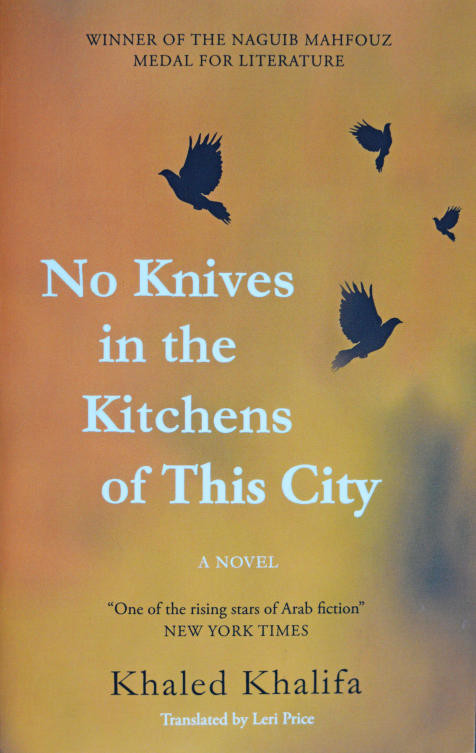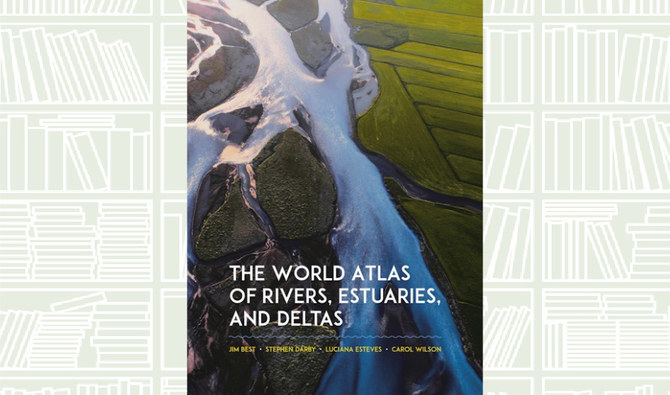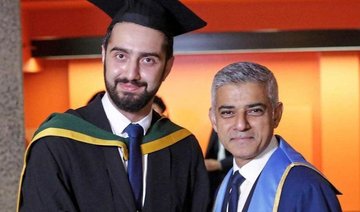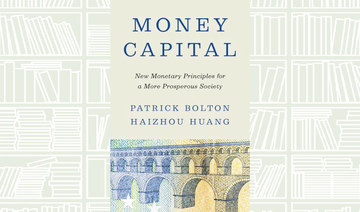“No Knives in the Kitchens of This City” by Khaled Khalifa is a heartbreaking story of a Syrian family navigating Aleppo as politics, the president and loyalties ravage the city. Khalifa, who was born in Aleppo, is the author of four novels and the editor of the literary magazine Alif. He does not hold back in his descriptions of how Aleppo, from the 1960s to the 2000s, has fallen around families who have no choice but to live through the disasters. Translated into English by Leri Price in 2016, the novel won the Naguib Mahfouz Medal for Literature in 2013 and was shortlisted for the International Prize for Arabic Fiction in 2014.
Khalifa’s story is told and retold by his characters who long for the past when life was not as difficult. Following one family, the novel reveals the story of a mother who died “ten years too late,” according to her son. Her family must find their way through the streets of Aleppo amid its dwindling lettuce fields, overcrowded streets and loyal party members looking for allegiances and punishing those who do not praise the leader as they do.
Not a loyalist and marred by misfortune, the mother must make do with her life, even if her son’s birthday is marked by the Ba’athist coup of 1963, an event in history she despises which makes her feel as if “her life was a collection of mistakes that could never be resolved.” Her life deteriorates slowly after she, a dreamy woman with dark eyes, marries for love and eventually is left by her husband for another woman. She is abandoned by her own family, except for her brother known as Uncle Nazir, and forced to continue life as a school teacher with three children and her shame. But as her own life takes a turn down a twisted and unplanned path, so does Syria’s and its beloved city of Aleppo.
The regime’s takeover is swift — it forcefully grasps the country and its people. Neither their lives nor their surroundings are in their hands anymore.
From the narrator’s grandfather Jalal Al-Nabulsi, who is “proud of being from a family which had been in Aleppo for a thousand years,” one of the first employees of the Railway Institute and one of the only witnesses to the inception of the Syrian railway system, to a mother who “perpetually extolled the past and conjured it up with delight as a kind of revenge for her humble life,” to Sawsan who at first is irrepressible and then “immersed herself into radicalism and fatwas day after day,” Khalifa’s book weaves through the generations of the family.
His book depicts a fading picture, one that was once vibrant and full of life. He moves from Aleppo to Midan Akbas and back, through dusty roads and the Cinema Opera where childhoods were filled with Egyptian and Bollywood movies “with happy endings.” He tells the stories of women who leaf through trinkets and forgotten wares in the Bab Al-Nasr second-hand shop and bring them back to life to feel a semblance of magic. As “walking in the streets had become a terrifying experience” and violence and temperamental political attitudes take hold, his sentences and metaphors captivate the reader and will immerse you in Syria.
Time and age weigh heavily on the pages as a collapsing life and city add to the darkness that begins to take hold of Aleppo. Tales of love and dreams, of faded images that serve as motivation to move forward, are rampant. Mother manages to move on when she believes she is “divorced, not abandoned,” but for others, it is a little more difficult to convince themselves and find inspiration to move forward.
Khalifa’s book is reminiscent of Turkish novelist Sabahattin Ali’s style in the manner in which he hints that it is life that shapes people and not people who shape life. Like Ali, Khalifa’s story is about how circumstance decides the path one’s life will take. His love for the city and for Syria is ever-present in his every description and metaphor. He can enchant the reader with details of the city and its history, its buildings and the “rising fumes of death and the fear present in every street and on the face of every man and woman hurrying home in the early evening.”
But amid the fear are pockets of people who cling to music and passionate love, who attempt to keep hate away and defy the powers that be. Within the dark alleyways and molding walls, art, poetry and theater flourish. Sometimes, the characters live in their own momentary bubbles and are blind to the outside world in their pursuit of self-discovery and purpose. But ultimately, they are forced back to face the world and themselves.
In the darkness are bouts of light, but it is neither bright nor long-lasting and that is the truth and reality of Syria. Despite this, the resilience of Khalifa’s characters in their journeys is hopeful. This book paints horrifying pictures as beautifully as it does optimistic ones. Khalifa’s writing is whole, his sentences memorable, his characters strong and fearless. His strength lies in his ability to reveal harsh truths and ugly realities beautifully, to bring through the seas of hate, love and resilience.
In the end, when life hangs on by a thread, there is hope amid the pessimism as “Aleppo still embodied a dream of wealth and urbanity even though three-fourths of it had turned into slums unfit for human habitation.”
Book Review: A Syrian family stands tall as Aleppo falls
Book Review: A Syrian family stands tall as Aleppo falls

What We Are Reading Today: The World Atlas of Rivers, Estuaries, and Deltas

Authors: Jim Best, Stephen Darby, Luciana Esteves, & Carol Wilson
From the Congo and the Mekong to the Seine and the Mississippi, Earth’s rivers carve through landscapes before coursing into the world’s oceans through estuaries and deltas.
“The World Atlas of Rivers, Estuaries, and Deltas” takes readers on an unforgettable tour of these dynamic bodies of water, explaining how they function at each stage of their flow.
What We Are Reading Today: Money Capital

Authors: Patrick Bolton & Haizhou Huang
In this book, leading economists Patrick Bolton and Haizhou Huang offer a novel perspective, viewing monetary economics through the lens of corporate finance.
They propose a richer theory, where money can be seen as the equity capital of a nation, playing a similar role as stocks for a company.
What We Are Reading Today: ‘Crossing Thoughts’

Author: Sultan Ayaz
“Crossing Thoughts” is a fantasy novel in English by Saudi author Sultan Ayaz, published in 2017.
Ayaz’s novel is about humans defending their homeland against demon oppression. It is about the eternal fight between humanity and demons, and the person who stands between them.
The story begins with Drake, a child who lives a peaceful life with his family in a small town. However, a demonic attack destroys the village, but Drake somehow survives.
Three characters emerge: Aria, Ray and Amber, who study the nature of elements at the Grand College of Elements in the Kingdom of Iora, one of three kingdoms suffering demonic oppression. They learn to employ elemental magic as a weapon against their demonic opponents.
Aria (wind element user), Amber (fire element user) and Ray (thunder element user) end up fighting a sea demon and are discovered by a mysterious man called Soul, who admires their powers and helps them train to become “demon slayers,” to free humans from oppression.
There are many fight scenes in the storyline using magic and elements, and the book is full of drama, plot twists and terror.
What I liked about the narrative is how easy it is to read and follow, and the development of the world building —from the village to the Kingdom of Iora.
The female characters in the novel shine brighter and have distinct styles, making them more intriguing to read about, and each possesses a particular power.
It might be confusing for some readers that the story begins with Drake’s perspective and then cuts to the story of Aria, Amber and Ray. However, the more you read, the more intriguing the female storylines become.
The book has received four-plus star ratings on the Goodreads website and is simple enough to read in one sitting.
In 2020, Ayaz became one of the first Saudi novelists to have a fiction work in English published overseas when Olympia Publishers, a British publishing house, purchased the rights to “Crossing Thoughts.”
The novel is also set to be adapted into a Manga comic by Manga Arabia.
What We Are Reading Today: When the Bombs Stopped

Author: Erin Lin
Over the course of the Vietnam War, the United states dropped 500,000 tonnes of bombs over Cambodia—more than the combined weight of every man, woman, and child in the country.
Fifty years after the last sortie, residents of rural Cambodia are still coping with the unexploded ordnance that covers their land.
What We Are Reading Today: Father Time

Author: Sarah Blaffer Hrdy
It has long seemed self-evident that women care for babies and men do other things.
Puzzled and dazzled by the tender expertise of new fathers around the world— several in her own family—celebrated evolutionary anthropologist and primatologist Sarah Blaffer Hrdy set out to trace the deep history of male nurturing and explain a surprising departure from everything she had assumed to be “normal.”


















